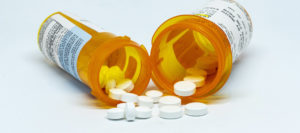
Accessing Drug Rehab Services in Massachusetts
Barriers to accessing drug rehab services in Massachusetts can be tough to overcome. But, there are ways! Lack of knowledge, financial restraints, social stigma, transport issues and fear of withdrawal are some of the biggest. Let’s explore how you can beat them!
To access available services, research programs, and resources in the state. SAMHSA has an extensive list of programs for each state, including Massachusetts. You can also talk to a medical professional to get advice on the best rehab.
Financial constraints? State-funded programs such as MassHealth and Tufts provide financial help for rehab services. Private insurance companies may also offer coverage.
Social stigma is a barrier many face. Remember, addiction is a disease, not a character flaw. Join support groups like AA or NA for support without judgment.
Transport issues? Consider Uber or Lyft for affordable rides.
Understanding the Barriers to Treatment
To understand the common barriers to treatment for drug addiction, delve into ‘Understanding the Barriers to Treatment’ with a focus on solutions to overcome them. Lack of insurance coverage, access to rehab centers in remote areas, fear of stigmatization, financial constraints, and insufficient information and awareness are all sub-sections worth examining.
Lack of Insurance Coverage
Insurance coverage for mental health treatment can be a major barrier. Many Americans find that their insurance won’t cover costs. Even those with coverage may have low benefits or high co-pays. Low-income people may not even have access to insurance.
It’s important to remember that help is available. Community clinics and non-profits provide low-cost or free mental health services. So, don’t hesitate to start exploring your options. Advocate for better insurance coverage and access for all. Don’t let financial barriers prevent you from getting the care you need. Reach out to local resources today!
Lack of Access to Drug and Alcohol Rehab Centers in Remote Areas
Accessing drug rehab centers in remote areas is a major challenge. Few facilities and far distances from urban areas make it hard for patients. This leads to weak motivation and a daunting journey to rehabilitation. Patients worry about the quality of services in these isolated centers.
Drug Rehab in MA is stressful. But, traveling long distances and making many adjustments become burdensome. The lack of transportation infrastructure adds further obstacles, making it costly and hard to access. These barriers put extra pressure on those struggling with addiction, risking relapse or giving up hope.
This issue is prevalent worldwide, especially in third-world nations. Many people live far from hospitals and primary care providers in remote locations. Thus, their access to drug addiction therapy is hindered.
Drug rehab must be accessible everywhere, aiding the standardization of healthcare services. Policies recognizing this need should be implemented. Its impact is heavy on society’s vulnerable members’ mental health.
Fear of Stigmatization
The ‘Fear of Stigmatization‘ is a major obstacle that stops many from accessing the care they need for mental health conditions. Society still deems it taboo and shameful to admit to struggling mentally. This fear persists due to misinformation and stereotypes.
To reduce this fear, some strategies can be used. Openly talking about it, increasing public understanding through education campaigns, and tackling negative stereotypes are effective ways. Also, offering support groups and confidential therapy sessions create safe places for those with mental health issues.
It’s essential to recognize that asking for help is not shameful or weak. It requires courage and strength. Accessible treatments and compassionate support reduce barriers to getting the help needed.
Financial Constraints
Accessing proper financial resources is a challenge for those in need of treatment. Lack of funds can stop people from getting the necessary medical help, counseling, and therapy. This issue can be unavailability of insurance, costs exceeding personal budgets, or ostracization from society.
People resort to self-medication, which can be bad for their recovery. If financial constraints arise, the desire for therapy decreases since other needs compete for limited resources.
To fight this, making medical costs more affordable and accessible has been emphasized. Programs like Medicaid expansion support states in funding mental health channels. But, many still don’t get help.
The 2008 Global Financial Crisis showed this problem. Families lost jobs, so healthcare was not accessible without proper financial resources. Families sold assets like homes or cars to pay for meds and psychiatric services.
Insufficient Information and Awareness
People can be unaware that treatments for mental health exist, leading them to think recovery is not possible. Not being aware of mental health issues and their symptoms can stop individuals from getting the help they need.
The stigma attached to mental illness stops people from talking to family, friends or healthcare providers about it. False information can contribute to misunderstandings about mental health and its treatments. Cultural traditions can further prevent people from seeking help.
It’s important to note that not only do patients suffer from a lack of knowledge and awareness, but healthcare providers may also not have enough training or information about mental health and its treatment options.
To tackle these obstacles, more education is required to raise awareness and reduce stigma. This should target both patients and healthcare providers. Public service announcements, media campaigns, or social media platforms to spark conversations would be a good start. Providing accurate information through publications can also help dispel any incorrect beliefs.
Overcoming the Barriers to Accessing Drug Rehab Services in Massachusetts
To overcome the barriers of accessing drug rehab services in Massachusetts, you must be aware of the various available solutions. This section will introduce you to the different types of programs and services that can aid your recovery journey. These include government-sponsored programs, private insurance, accessible and affordable outpatient rehab services, community-based programs, faith-based programs, online support groups, and telemedicine.
Government Sponsored Programs
The government offers drug rehab services to those without resources. These programs provide support for long-term recovery. The government has set up various initiatives to help people get rehab, like free or low-cost treatment, assistance for low-income people, and insurance coverage.
Programs also provide specialized intervention services, such as community outreach, hotlines, and detox referrals. Despite these being available, there are still barriers to accessing them, like a lack of awareness or fear of stigmatization.
Alexandra in Massachusetts faced these barriers. She had no medical insurance and was on a limited income. But she eventually found out about state-funded facilities that gave her hope.
Medicaid
Access to drug rehab services can be tough if you have no money. Medicaid is the answer for those with limited resources. People enrolled can get treatment such as outpatient, residential and detox services. But not all facilities accept Medicaid payments, so make sure your choice does before applying.
Funding and demand for Medicaid continue to be an issue. The government and private organizations should work together to address this. And spreading awareness of Medicaid coverage can help too.
Sadly, many don’t know about free coverage options like Medicaid. Don’t let money or ignorance stop you from getting help. If you’re not sure about eligibility, talk to a rehab center or counselor. Recovery is possible!
Medicare
Accessing drug rehab services under Medicare can be tough. The list of approved providers may not include all facilities, giving limited options. Plus, some procedures, such as detox programs, may not be included. It’s important to look for all possible solutions to overcome these barriers.
One option is to find Medicare-approved providers that provide comprehensive services. Patients can also research federal and state-funded programs offering rehab financial assistance.
Primary care physicians can also help people access drug rehab services under Medicare. They can recommend patients who meet the criteria for coverage under Medicare Part B or D. This recommendation can help people get past the high rehab cost.
For example, a patient from Massachusetts struggled with opioid addiction for years. But with the help of her physician, she found a facility that offered comprehensive treatment under Medicare. She was able to successfully complete rehab and stay sober, thanks to affordable care through Medicare.
Massachusetts Substance Abuse Medicaid Waiver
The Massachusetts Substance Abuse Medicaid Waiver is a program that offers comprehensive addiction treatment. It covers services from outpatient and inpatient care to medication-assisted treatment and recovery support. It also provides case management, counseling, and other supportive services.
What makes this program unique is its focus on coordinated care. All providers work together to give the right level of care, when needed. This means better outcomes and lower costs.
According to SAMHSA, the program has been successful. Enrollment has grown since 2005.
Private Insurance
Many struggling with addiction rely on private insurance for drug rehab services. But not all providers cover these services. This can be a major obstacle to getting help.
When coverage is available, it can be hard to understand what’s covered, how much it will cost, and the steps to access it. This lack of clarity can stop people from seeking treatment.
To combat these barriers, educating yourself about insurance coverage and advocating for yourself is key. Seek out resources that provide guidance and support.
Don’t let insurance worries stop you or someone you love from finding help. Take action to understand your options and get the support needed for recovery.
Accessible and Affordable Outpatient Rehab Services
Accessing outpatient rehab can be hard. Money and location can make it hard. In Massachusetts, treatment programs are affordable and have integration options. Patients can get individualized care through telehealth, in-person, and group therapy. The state has a network for addiction treatment and medical care, with therapies like CBT, motivational interviewing, and MAT.
For affordable access, insurance providers are important. Boston Medical Center got the Dimock Center to help more patients in Boston. These services include addiction treatment and primary care together.
An example of this system working was when a patient had difficulty getting transportation for MAT. They were 45 mins from public transport. However, there was a closer option. But the case manager chose the wrong one, thinking it would be more convenient.
Service providers should strive to provide affordable and local rehab services. This is essential for people on MAT. Missing a dose can set them back. Breaking barriers to access is important.
Community-based Programs
Community-based programs offer a lifeline to those dealing with drug addiction in Massachusetts. These programs provide counseling, medication-assisted treatment, and peer support groups tailored to the needs of those with substance use disorders. By making care affordable and accessible in local communities, these programs help reduce the stigma around addiction and make treatment available to everyone.
In addition to traditional therapy and support services, these programs also offer innovative approaches like yoga classes, art therapy sessions, and mindfulness workshops. These non-traditional treatments are especially helpful for those who have had addiction for a long time, or who have co-occurring mental health disorders.
These programs focus on building relationships in local communities. They can reach individuals who might not otherwise seek addiction treatment by partnering with local organizations like churches, schools, and community centers.
The Massachusetts Department of Public Health reports that over 2,000 people died from opioid overdoses in 2019. Community-based programs are an important part of the state’s efforts to combat this epidemic, providing resources to addiction patients.
Faith-based Programs
Faith-based programs are a specific type of drug rehab service that emphasizes spirituality’s importance for recovery. These plans include prayer, meditation, and attending religious services.
Many individuals turn to these programs to find something bigger than themselves and get help from people with the same beliefs. But some may not feel included if the program’s beliefs don’t match theirs. It is important for all participants to feel welcome, no matter their spiritual background.
These programs provide a sense of community. Group meetings and activities allow people with similar struggles to support each other. This can be very healing during recovery.
One woman talked about her experience: “I was hesitant at first since I’m not religious. But I decided to try it. I found the community comforting, and the program gave me more to my life than just drugs“.
Online Support Groups and Telemedicine
Online support groups and telemedicine have revolutionized how drug rehab services are accessed in Massachusetts. Individuals can now benefit from virtual tools that make treatment more accessible and convenient.
- Online groups provide a platform for individuals to connect with others facing similar issues. Counseling, group therapy, and tailored recovery plans are customized to specific needs.
- Telemedicine is an attractive option for people who cannot access physical therapy facilities due to distance or mobility issues. Patients can easily interact with therapists via video and receive medication monitoring without leaving home.
- 24/7 access to trained addiction treatment professionals is especially important in times of isolation and quarantine.
- These virtual solutions also reduce stigma by providing a private way to get help without judgment from those who don’t understand addiction.
- Online support groups and telemedicine save time and money by eliminating travel costs, waiting lists, and long commute times.
Though there are privacy concerns, network problems, and tech infrastructures to consider, the advantages outweigh the limitations.
So What is The Best Way to Find a Drug Rehab in Massachusetts
Due to various barriers, gaining access to drug rehab services in Massachusetts can be tough. However, these obstacles can be overcome with determination and the right strategies. Ideas to help with this include:
- Finding financial help from gov’t and private organizations
- Researching the most effective treatment options close by
- Building social support networks for encouragement and practical help
Talking to medical pros who specialize in addiction recovery is also important. They can help guide you to treatments that suit your past substance use, goals, and medical needs. It is key to remember that addiction recovery is different for everyone – if the first approach isn’t successful, don’t be disheartened.
A great idea for those trying to get drug rehab services: start small. Set achievable goals, such as calling a local provider and arranging an appointment. As people reach each milestone, they will gain a feeling of empowerment that will help them with rehab. Remember- asking for help is a strength!
What Makes Northstar Recovery Center a great choice for Drug Rehab in Massachusetts?
At the heart of Massachusetts, nestled in the sprawling scenic beauty of Southborough and Springfield, lies a beacon of hope for those seeking recovery from alcohol addiction: Northstar Recovery Center. This drug rehab facility in MA is a premier destination for those seeking ‘best rehab near me‘ or ‘luxury rehab near me’ due to its comprehensive approach to rehabilitation and the array of services offered.
Northstar Recovery Center’s overall strategy employs a three-fold approach best delineated as PHP (Partial Hospitalization Program), IOP (Intensive Outpatient Program), and OP (Outpatient Program). These diverse programs cater to the varying needs of individuals confronting alcohol addiction, ensuring a course of treatment best suited for their unique situations.
Starting with the PHP, this is a meticulous program designed for individuals who need a more concentrated hospital-like environment without the rigidity of 24-hour care. Northstar Recovery Center has soared to new heights in PHP treatment, providing a therapeutic structure enriched with daily routines and specialized therapeutic interventions. The PHP is superbly crafted to strike a balance between intensive therapy and personal autonomy, positively influencing recovering individuals’ everyday lives.
Moving to the IOP, Northstar Recovery Center takes pride in its Intensive Outpatient Program, widely esteemed for its effectiveness in Alcohol Treatment in MA. The IOP allows the recovering individuals to maintain their daily activities, such as work or school while receiving the necessary support for sobriety. With specialized therapy sessions and counseling, this program empowers individuals, encouraging personal growth and relapse prevention strategies.
Northstar Recovery Center’s OP, or Outpatient Program, is another key component of their multi-faceted treatment method. Recognized as quintessential alcohol counseling near Boston, it equips individuals with the knowledge and strength to manage their triggers in real-world settings. This lower-intensity intervention provides continuous engagement with therapeutic resources, allowing patients to apply their learnings to everyday situations.
What sets the Northstar Recovery Center apart in Alcohol Treatment in MA and beyond is its holistic approach towards recovery. Their philosophy recognizes and treats alcohol addiction as more than a physical issue. It identifies the underlying emotional and psychological aspects that often drive addictive behaviors. Thus, thoughtful mental health therapy elements are integral to all their programs.
The center’s luxury rehabs near Boston treat each individual with dignity, employing state-of-the-art amenities that enhance residents’ comfort. These calming environments foster healing and allow individuals to focus fully on recovery.
While centers for alcohol treatment near Boston are numerous, Northstar Recovery Center stands unparalleled. Their unparalleled expertise, individualized care, and comfort place them at the top of a searcher’s list for ‘best rehab near me.
Choosing a recovery center is a pivotal step in an individual’s journey towards sobriety. For those seeking Alcohol treatment in MA, especially close to the Boston area, Northstar Recovery Center rises above the rest. As they say, the journey of a thousand miles begins with a single step, and beginning your journey with Northstar could be the step that leads to long-term recovery and a renewed life free of alcohol addiction.
Contact Northstar Recovery Center Today!!
With decades of extensive research, relentless dedication, and a comprehensive suite of cutting-edge therapies, Northstar Recovery Center is a beacon of light for those seeking recovery. Our holistic approach strategically combines traditional treatments with the latest innovations, setting us as a trendsetter in rehabilitation.
Every journey at Northstar is unique, calibrated meticulously to each individual’s needs. From detox to inpatient and outpatient therapies, our seasoned experts customize plans to address underlying issues, not just the symptoms.
Join the community of thousands who have reaffirmed their commitment to life at Northstar Recovery Center. We invite potential patients, families, and healthcare providers to call our representatives, available 24/7, for a detailed understanding of our services.
Want to get an objective assessment of your needs? Schedule a free consultation meeting right now through our website or call us directly.
Making financial decisions about your recovery shouldn’t be stressful. We accept most insurance plans, and our financial guides help you navigate it all. Contact them, step into the hassle-free path to recovery.
Discover our entire range of services through a physical or virtual tour at our facility. It’s time to explore how our tranquil environment and certified staff can accelerate your healing process. Book your tour today.
Blogs, success stories, recovery resources – our website houses it all. Dive into the wealth of knowledge, draw strength from those who were once in your shoes, stay updated with the latest findings in recovery care. Bookmark our website, soak in the wisdom and inspiration.
Education programs, family involvement, alumni networks- we have a sphere of support everywhere you look. If you’re a patient’s relative, sign up for our Family Program. Are you an alumnus? Become part of our active alumni community.
Our Intensive Outpatient Program (IOP) and Partial Hospitalization Program (PHP) offer flexibility while ensuring comprehensive care. Learn how our IOP or PHP can easily slide into your schedule. Call us, bring harmony into your life without having to put it on hold.
A commitment to lifelong recovery demands continued care even after leaving our facility. With our Aftercare Program, you’re never alone in your journey. Enrich your recovery process with sustained support, reach out to us for information on our Aftercare Program.
Northstar Recovery Center is your guide, support, and refuge in the journey toward recovery. The path of healing starts here. Choose health, choose life, choose Northstar. Make the call, take the first step, join us today, and transform your life.







 One of the most widely prescribed medications for anxiety is
One of the most widely prescribed medications for anxiety is 

